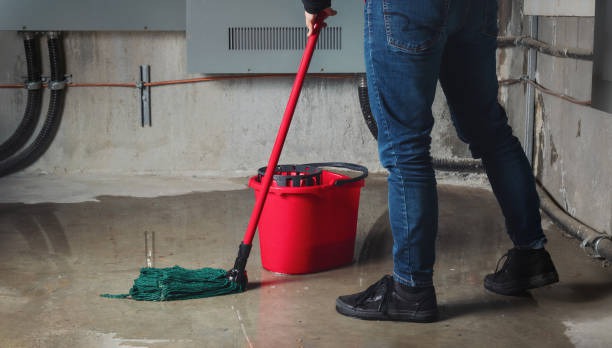When we think of real estate, we often picture beautiful homes, prime locations, and good investment opportunities. However, one factor that can significantly affect property value—a detail that sometimes slips under the radar—is water damage. In this article, we’ll explore how water damage influences property values and offer insights that every real estate agent should consider.
1. Understanding Water Damage
Before jumping into its impact on real estate, let’s first understand what water damage actually entails. It’s not just about a leaky roof or a flooded basement. Water damage can manifest as mold, foundation problems, or weakened structural components within a property. It might stem from a wide range of sources, including natural disasters, plumbing issues, or even improper waterproofing.
2. How Water Damage Affects Property Value
The presence of water damage can seriously diminish the appeal of a property. Here are some reasons why it often leads to a decrease in property value:
-
Unappealing Appearance: Water stains and discoloration can make a property look neglected and uninviting.
-
Structural Concerns: Water can weaken the structure, posing safety risks and resulting in costly repairs.
-
Mold Issues: Dampness fosters mold growth, which can lead to health problems for potential buyers.
-
Insurance Challenges: Properties with a history of water damage may carry hefty insurance premiums.
-
Compromised Systems: Excessive moisture might compromise utility systems such as heating, ventilation, and electrical wiring.
3. Spotting Water Damage in Properties
As a real estate agent, being able to identify signs of water damage is crucial. Here are some things to look out for:
-
Visible Stains and Discoloration: Check for water stains on ceilings and walls.
-
Peeling Paint or Wallpaper: This can often indicate hidden moisture problems.
-
Mold or Mildew: Unpleasant odors or visible mold patches signal potential water damage.
-
Foundation Cracks: Water can seep into cracks, causing them to expand.
-
Warped Floors and Ceilings: These can be signs of severe water impact.
4. The Financial Implications of Water Damage
Water damage doesn’t just affect the structural integrity or aesthetics of a home; it also comes with several financial ramifications:
-
Repair Costs: The cost of repairing water damage can be extensive, eating into profits.
-
Reduced Market Value: Homes with water damage tend to lag in price compared to unaffected properties.
-
Extended Listing Time: Properties with known damage issues might stay on the market longer.
5. Strategies for Real Estate Agents
Handling properties with water damage requires a strategic approach. Here are some tips:
-
Full Disclosure: Honesty about water damage issues is vital. Hiding these problems can backfire legally and ethically.
-
Partner with Specialists: Collaborate with experts in water damage assessment to evaluate the extent of the issue.
-
Renovate Before Listing: Encouraging sellers to repair significant damage before listing can attract more buyers and a better price.
6. When Water Damage Isn’t a Deal Breaker
Not all water damage spells doom. With the right approach, certain properties can still attract buyers. Here are some scenarios where water damage might not be a deal-breaker:
-
Rising Popularity of DIY: Some buyers see homes requiring repair as opportunities for customization.
-
Current Market Trends: In a seller’s market, minor water damage might be overlooked if the property location is desirable.
-
Discount Opportunities: Price reduction strategies can make damaged properties more attractive to budget-conscious buyers.
7. Prevention and Maintenance Guidance
Preventing water damage is always better than remedying it afterward. Here’s how homeowners and agents can help keep properties in good shape:
-
Regular Inspections: Conduct routine check-ups for leaks in roofs and plumbing.
-
Adequate Drainage Systems: Ensure proper landscaping and drainage to keep water away from the property’s foundation.
-
Weatherproofing: Use door and window seals to prevent rainwater intrusion.
8. Local Market Considerations
When addressing concerns related to local climate and its effects on properties, it’s essential to consider how different areas are impacted. For example, homes in various parts of Ontario can experience unique challenges due to weather conditions. This is particularly true in Stouffville, where the combination of seasonal rain and potential flooding can lead to significant issues. Understanding the specific factors contributing to Stouffville water damage allows us to offer more tailored and effective solutions to homeowners in that area.
9. Navigating Insurance and Legal Aspects
When dealing with water-damaged properties, understanding insurance and legal pointers is essential:
-
Insurance Claims: Guide your clients on how to make informed decisions regarding filing claims.
-
Legal Advice: Encourage consulting a legal expert to ensure any disclosure obligations are met.
10. Partnering with Specialists
Finally, it’s immensely beneficial for agents to build relationships with professionals who specialize in water damage repair. A water damage company serving Aurora area, for instance, can offer invaluable expertise when advising clients or resolving issues.
11. Adapting to Changing Real Estate Landscapes
Adaptability is crucial in real estate. By staying informed about environmental changes and potential risks such as water damage, agents can maintain an edge in the industry and gain customer trust.
12. Proactive Measures
Sellers can take proactive measures by investing in prevention and quick repairs, potentially turning a dire situation with water damage into an opportunity. Properties that have undergone expert remediation, such as those serviced by companies like PuroClean in Unionville, might rebound better and attract safety-conscious buyers.
Final Thoughts
Real estate is a dynamic industry that’s all about turning challenges into opportunities. Water damage is one of those challenges, but with the right knowledge and approach, it doesn’t have to be an insurmountable obstacle. By understanding the real impact of water damage on property values, real estate agents can help clients navigate buying or selling decisions in smarter, more informed ways. Armed with the insights shared in this article, you’re better prepared to tackle water-related hurdles head-on.
